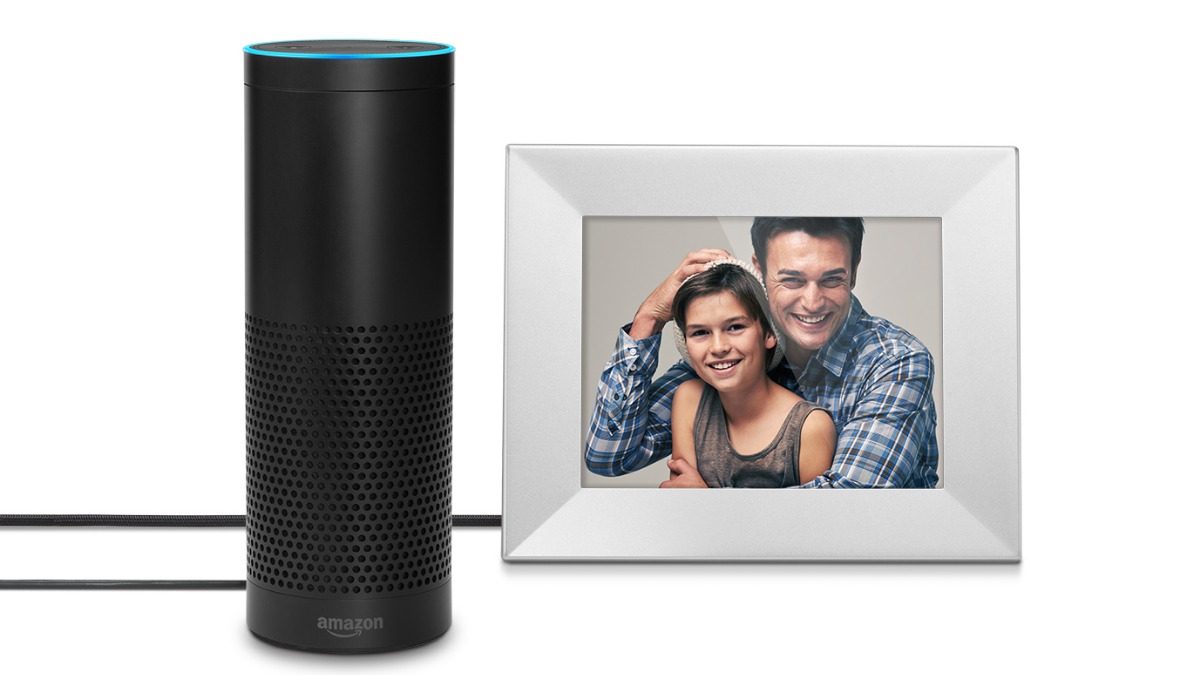15 - 15Shares
If you’ve watched The Jetsons, you’ve probably marveled at the family’s space-age lifestyle. You couldn’t wait for the day when you’ll be able to drive around in George Jetson’s flying saucer car, and you wished for a robot maid like Rosie to help you with the household chores.
Fast forward to 2018, three decades after the show’s last episode: Companies are developing prototypes of flying cars, and space colonization is a far-off dream no more. While sentient robot assistants like Rosie are still far from mainstream, voice-controlled virtual assistants, like Amazon Alexa, are helping more and more people manage their schedules, households, and even Nixplay frames.
“I strongly believe voice user assistants along with the experiences that surround them are here to stay, and the interactions are only going to become more and more natural,” says Nixplay’s Head of Software John Marsden, who oversaw Amazon Alexa’s integration into Nixplay’s software.
According to John, Nixplay chose Alexa as its entry point into voice integration mainly for two reasons:
Alexa has the largest user base among the voice assistants on the market, and Nixplay already has an existing relationship with Amazon.
On a more personal note, John, who had recently transformed his house into a smart home, shares: “I am a massive advocate for smart home integrations and I use Alexa to control much of my home. I wanted my Nixplay frames to become part of my smart home family.”
Alexa and Nixplay
Integrating Alexa into the Nixplay platform seemed easy on paper: John and his team only had to create a “skill,” which in the Alexa universe, is “a term used to describe all the ways a user can interact with their frame through speech.” But this simple task posed several challenges.

John Marsden
“By far the hardest challenge–and one we are regularly improving on–is dealing with uncategorized voice input from the user in terms of playlist and frame names,” John shares. Most voice AI assistants work by learning a category for each input a user might give the system. If the voice assistant is asking the user to give it a location for a travel skill, it expects the user to give it the name of a city, country or area of some type in order to perform properly. It wasn’t that simple for Nixplay.
“The challenge we had is that a playlist name can be totally random–one person may have a playlist called ‘My Family,’ another might be ‘Summer Holiday 2016.’ As such, it’s very hard to categorize the information,” says John.
“The complexity lay more in trying to model all the ways different users might try to perform the same action, and the fact that we have to deal with a lot of random data with regards to playlist names and frame names,” he elaborated. “To handle this, we had to implement a lot more intelligence outside of what is provided by Alexa.”
In the end, John and his team came up with some core initial features. Alexa can be asked to display any of your playlists on any of your frames, and it can also assign a specific playlist to any Nixplay frame, wherever that frame might be located.
“We wanted to start simple and solve some of the large initial challenges without having to make major platform changes,” says John. “The playlist display functionality focuses on displaying the user’s content, which is what we are all about.”
You can also ask Alexa to tell you the connectivity status of your frame—”a supporting feature to allow a lot of our users to check on the status of a frame they are helping to manage remotely.”
Stepping into the future
There might only be a few Nixplay skills at the moment, but John assures us that his team has a lot of surprises up their sleeves.
“I can’t go into too much detail here for fear being hunted down by our product managers, but we are putting a lot of support into voice and have some big plans,” he reveals. “Our current focus is on making the content experience more dynamic, thereby making it easier for a user to see the photos that they wish to see without having to manually manage their content. We are also looking at ways of improving the multi-frame experience.”
Wherever Nixplay and Alexa’s partnership will take them, one thing’s for sure: it will always be grounded on Nixplay’s vision of a world where people can share their fondest memories with each other easily.
“I am sure a lot of what we do will be heavily influenced by our users, and they will have a big
say in where we take some of our voice features,” says John. “We are moving fast with regards to voice experience, so watch this space for other voice assistant announcements in the coming months!”
We’re not yet firmly in the future, but we’re most certainly on the way there.
Marianne is Nixplay’s Web Content Editor. Her hobbies include exploring new places, playing table tennis, and cuddling puppies. Send her a message at marianne.salazar@nixplay.com.
- 15Shares
15


1 Pingback